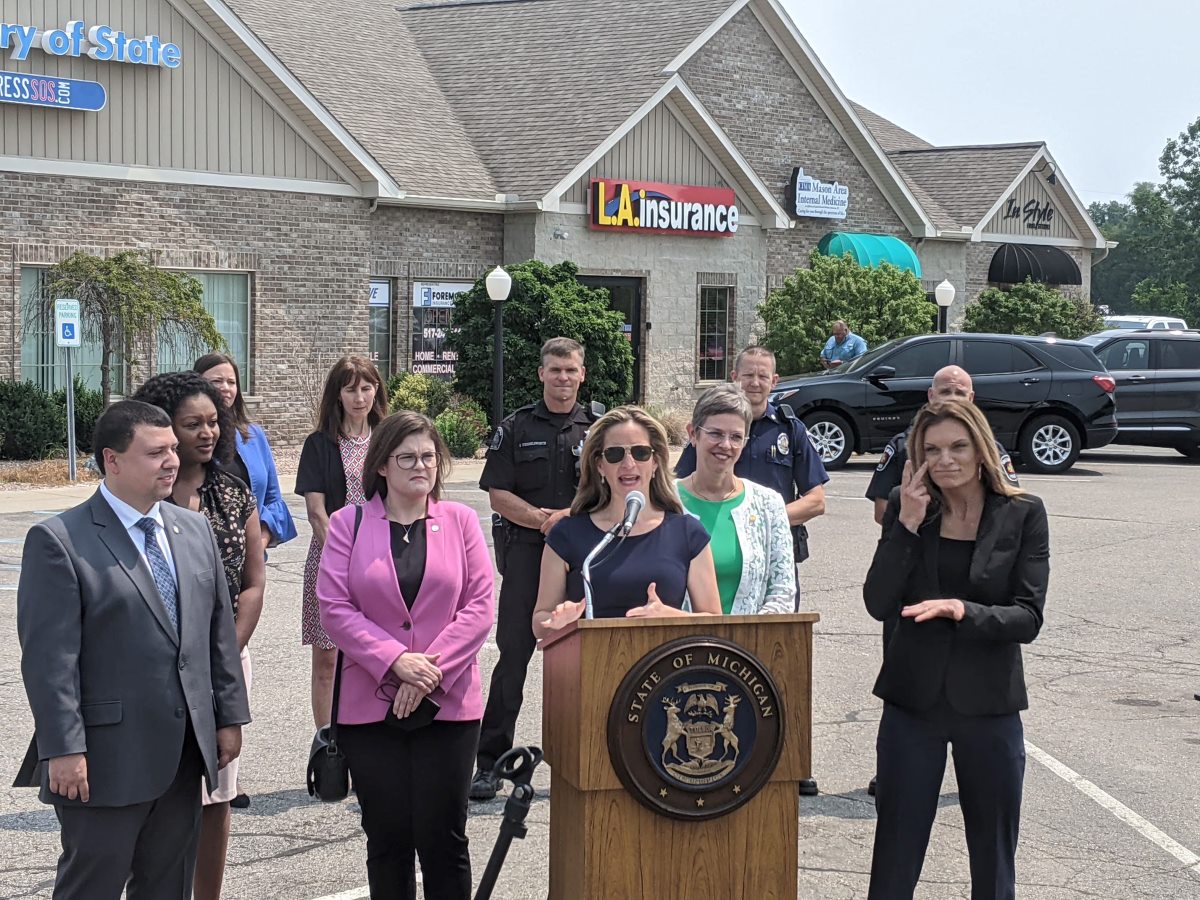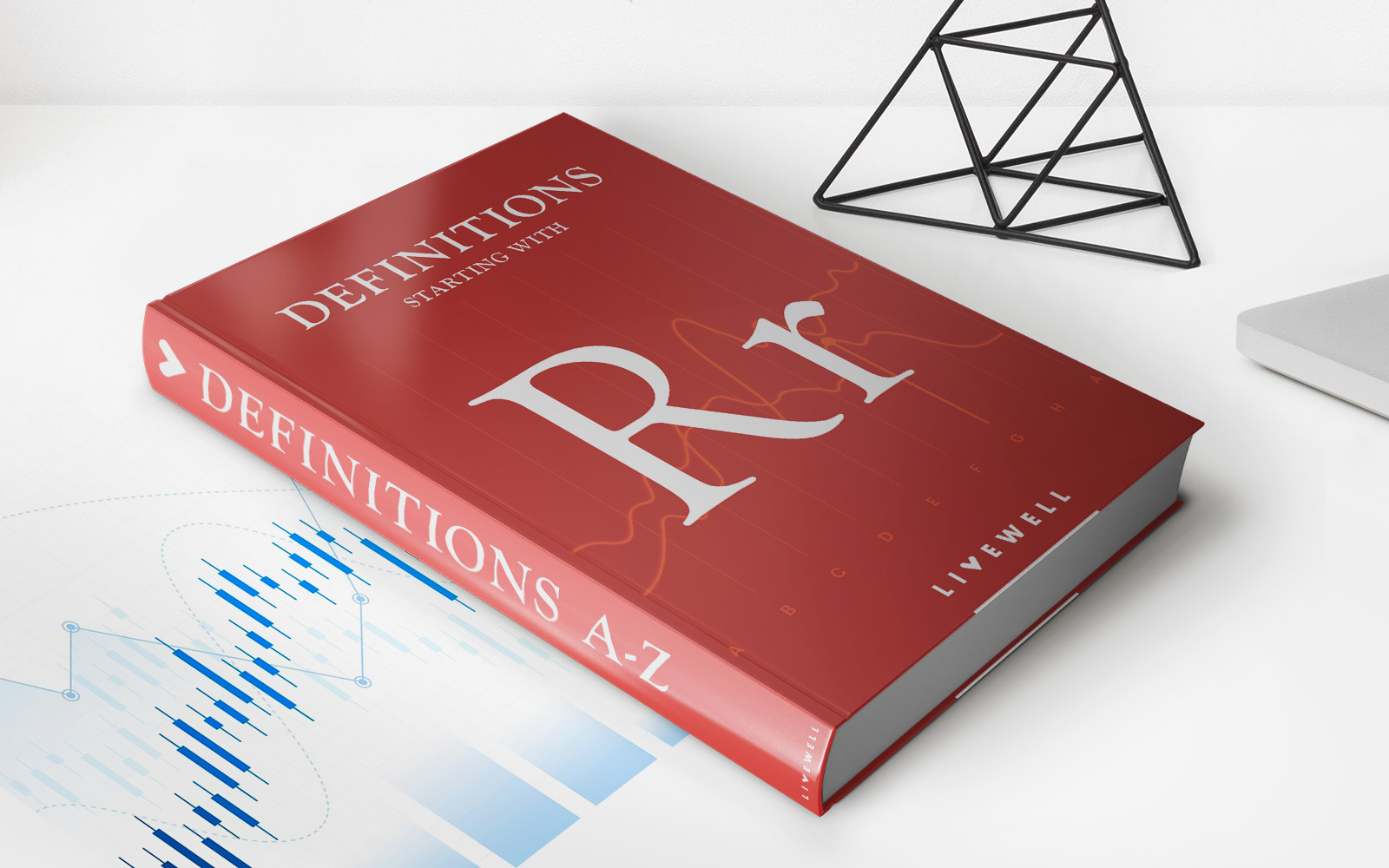Home>Finance>How Can I Get Homeowner’s Insurance After Non Renewal?


Finance
How Can I Get Homeowner’s Insurance After Non Renewal?
Published: November 20, 2023
Get homeowner's insurance even after non-renewal. Discover finance options to secure your home and protect your investment.
(Many of the links in this article redirect to a specific reviewed product. Your purchase of these products through affiliate links helps to generate commission for LiveWell, at no extra cost. Learn more)
Table of Contents
Introduction
Homeowner’s insurance is an essential protection that provides coverage for your home and personal belongings in the event of unforeseen circumstances, such as natural disasters or theft. However, there may be instances where your homeowner’s insurance policy is non-renewed by the insurance company, leaving you without coverage.
Non-renewal occurs when an insurance company decides not to renew your policy at the end of its term. This can be a challenging situation to navigate, as finding new insurance coverage can be difficult if you have a history of non-renewal. However, it’s important to remember that there are steps you can take to secure homeowner’s insurance after non-renewal.
In this article, we will explore the reasons for non-renewal, the steps you can take to get homeowner’s insurance after non-renewal, and alternative options for coverage.
Understanding these factors will help you regain the protection you need for your home and personal belongings.
Understanding Non-Renewal of Homeowner’s Insurance
Non-renewal of homeowner’s insurance refers to the insurance company’s decision not to renew your policy at the end of its term. Unlike cancellation, which terminates your policy before its expiration date, non-renewal occurs when the insurance company decides not to continue coverage beyond the current term.
Insurance companies have the right to non-renew policies for various reasons. These reasons could include a change in the company’s underwriting guidelines, an increase in risk associated with your property, or a history of filing excessive claims. Non-renewal can also occur if you fail to meet the insurance company’s requirements or if you have not paid your premiums on time.
It’s important to note that non-renewal is a legal and common practice in the insurance industry. Insurance companies regularly reassess their risk and financial exposure, which can lead to non-renewal decisions.
When your homeowner’s insurance policy is non-renewed, it means you will no longer have coverage provided by that particular insurance company. This leaves you responsible for finding alternative insurance coverage to protect your home and personal belongings.
Non-renewal of homeowner’s insurance can have several implications. Firstly, it may indicate a change in the insurer’s risk appetite. If an insurance company has recently experienced significant losses or incurred a high number of claims, it may become more conservative in underwriting policies and non-renew higher-risk properties.
Secondly, a history of non-renewal can make it more challenging for you to obtain insurance coverage in the future. Insurance companies consider past non-renewals as an indication of increased risk, which can result in higher premiums or limited coverage options.
Understanding the reasons for non-renewal and its implications will help you navigate the process of obtaining homeowner’s insurance after a non-renewal. In the next sections, we will explore the steps you can take to secure coverage and improve your insurability.
Reasons for Non-Renewal
There are several reasons why an insurance company may choose not to renew a homeowner’s insurance policy. It’s important to understand these reasons as they can impact your ability to secure coverage in the future and take necessary measures to address them.
One common reason for non-renewal is an increased risk associated with your property. Insurance companies regularly reassess the risk factors associated with insuring a particular home. If your property is located in an area prone to natural disasters, such as hurricanes, wildfires, or floods, the insurance company may decide to non-renew your policy to mitigate their exposure to potential claims.
Another reason for non-renewal could be a history of filing excessive claims. Insurance companies consider policyholders who frequently file claims as higher risk. If you have filed multiple claims in a short period of time, the insurance company may choose to non-renew your policy as it suggests a higher likelihood of future claims.
Non-payment of premiums is also a common reason for non-renewal. If you have failed to pay your premiums on time, the insurance company may decide not to renew your policy. It’s important to stay up to date with your premium payments to avoid non-renewal due to non-payment.
Changes in the insurer’s underwriting guidelines can also lead to non-renewal. Insurance companies regularly evaluate and update their underwriting guidelines to reflect changes in risk and market conditions. If your property no longer meets the insurer’s updated guidelines, they may decide not to renew your policy.
Lastly, non-renewal can occur if you fail to meet the insurer’s requirements. This could include maintaining certain safety features in your home, such as smoke detectors or security systems. If you have not fulfilled these requirements, the insurer may choose not to renew your policy.
Understanding the reasons for non-renewal is crucial in addressing any potential concerns and ensuring you take the necessary steps to secure homeowner’s insurance coverage after non-renewal. In the next section, we will discuss the actions you can take to assess the reasons for non-renewal and improve your insurability.
Steps to Take After Non-Renewal
Experiencing non-renewal of your homeowner’s insurance policy can be a stressful situation. However, there are steps you can take to secure coverage and protect your home and belongings.
1. Assess the reasons for non-renewal: Start by understanding why your policy was non-renewed. Review any communication from the insurance company or contact them directly to get clarity on the specific reasons. This will help you identify any areas that need improvement to increase your chances of obtaining new coverage.
2. Address the reasons for non-renewal: Once you understand the reasons for non-renewal, take the necessary steps to address them. For example, if your property is at a higher risk due to its location, consider implementing protective measures such as installing storm shutters or reinforcing your roof. This can help mitigate the risk and make your property more insurable.
3. Improve your claims history: If your non-renewal was due to a history of excessive claims, focus on preventing future claims. By implementing preventive measures, such as regular maintenance of your home and addressing potential hazards, you can reduce the likelihood of filing claims and improve your insurability.
4. Enhance your property’s insurability: Make your property more attractive to insurance companies by improving its overall insurability. This could include upgrading your home’s electrical and plumbing systems, installing security features like burglar alarms and fire extinguishers, and maintaining a well-kept property.
5. Shop around for new coverage: After taking steps to address the reasons for non-renewal and enhancing your insurability, start shopping for new homeowner’s insurance. Reach out to multiple insurance companies to get quotes and compare coverage options. Consider working with an independent insurance agent who can help you navigate the process and find the best coverage for your needs.
6. Consider alternative options: If you are having difficulty securing traditional homeowner’s insurance after non-renewal, explore alternative options. This could include seeking coverage through specialty insurance providers, state-run insurance programs, or surplus lines insurers, although these options may come with higher premiums or limited coverage.
Remember, securing homeowner’s insurance after non-renewal may take time and effort, but it is essential to protect your home and belongings. By taking proactive steps to address the reasons for non-renewal and working with insurance professionals, you can find suitable coverage and regain peace of mind.
Assessing the Reasons for Non-Renewal
When your homeowner’s insurance policy is non-renewed, it’s important to assess the reasons behind the decision. Understanding the factors that influenced the non-renewal will help you take appropriate action and improve your chances of obtaining new insurance coverage.
Begin by reviewing any communication you received from the insurance company regarding the non-renewal. Pay close attention to the specific reasons provided. These reasons may include an increased risk associated with your property, a history of excessive claims, non-payment of premiums, or failure to meet the insurer’s requirements.
Once you have identified the reasons, it’s essential to evaluate each one individually. Consider whether the reasons are within your control or influence. For instance, if the non-renewal was due to an increased risk associated with your property, assess whether you can mitigate the risk through improvements or modifications. This could include strengthening your property against natural disasters or implementing security measures.
If the non-renewal was a result of a history of excessive claims, assess your past claim activity. Determine if there are any patterns or trends that need to be addressed. Taking steps to prevent future claims, such as regular maintenance of your property and addressing potential hazards, can help demonstrate to insurance companies that you are a responsible homeowner.
In the case of non-payment of premiums, assess your financial situation and determine if adjustments need to be made to ensure timely premium payments going forward. Budgeting and setting reminders can help you stay on track with your premium obligations.
Additionally, if the non-renewal was due to failure to meet the insurer’s requirements, assess what specific requirements were not met. Determine if these requirements are reasonable and feasible to fulfill. For example, if the insurer requires certain safety features in your home, evaluate if those features can be installed or upgraded to meet the requirements.
By assessing the reasons for non-renewal, you can take targeted actions to address any deficiencies or concerns. This proactive approach will not only improve your chances of securing new insurance coverage but also help you manage and mitigate risks associated with your property.
Furthermore, in some cases, it may be beneficial to seek guidance from insurance professionals, such as independent insurance agents or consultants. These experts can provide valuable insights and advice tailored to your specific situation, ensuring you make informed decisions.
Remember, assessing the reasons for non-renewal is the first step in the process of obtaining new insurance coverage. By understanding and addressing the factors that led to the non-renewal, you can position yourself for success in securing homeowner’s insurance that meets your needs and provides the necessary protection for your home and personal belongings.
Improving Your Insurability
After experiencing non-renewal of your homeowner’s insurance policy, taking steps to improve your insurability can increase your chances of obtaining new coverage. Implementing certain measures can make you a more attractive candidate to insurance companies and help mitigate any concerns they may have.
One way to improve your insurability is by reducing the risk associated with your property. This can be done by making structural and safety improvements. For example, if your property is located in an area prone to natural disasters, consider fortifying it against these risks. Reinforcing your roof, installing storm shutters, or retrofitting your home to withstand earthquakes can help minimize potential damage and increase the confidence of insurers in providing coverage.
Maintaining a clean claims history is crucial for improving your insurability. Insurance companies view policyholders who frequently file claims as higher risks. Therefore, focusing on preventing unnecessary claims can be beneficial. Conduct regular maintenance of your home, address small repairs promptly, and take proactive measures to reduce the likelihood of accidents or incidents that may result in claims.
Improving the safety and security features of your property can also enhance your insurability. Invest in robust security systems, such as burglar alarms and surveillance cameras. Install smoke detectors and fire extinguishers throughout your home. Insurance companies often provide discounts for properties with these safety features in place, as they reduce the risk of theft, fire, and other hazards.
Having a good credit score is another factor that can positively impact your insurability. Insurance companies may consider your credit history when assessing your risk profile. Paying bills on time, reducing overall debt, and maintaining a healthy credit score can demonstrate your financial responsibility and make you more attractive to insurers.
Building a positive relationship with insurance companies can also improve your insurability. Continuously evaluate your insurance needs and coverage requirements. Regularly review your policies and make updates as necessary. Consider bundling your homeowner’s insurance with other policies, such as auto insurance, to potentially secure discounts and strengthen your overall insurance profile.
Finally, working with an independent insurance agent can be advantageous. These professionals have access to multiple insurance companies and can help you navigate the market to find the best coverage options tailored to your needs and circumstances. They can provide valuable advice and assist in identifying potential areas for improvement in your insurance profile.
By taking these steps to improve your insurability, you not only increase your chances of securing new homeowner’s insurance coverage but also demonstrate your commitment to responsible homeownership. Investing time and effort into enhancing your insurability can provide peace of mind knowing that your home and personal belongings are well-protected.
Shopping for Homeowner’s Insurance
After experiencing non-renewal of your homeowner’s insurance policy, it’s crucial to commence shopping for new coverage. Shopping around gives you the opportunity to explore different options and find the insurance policy that best meets your needs. Here are some key steps to consider when shopping for homeowner’s insurance:
1. Gather necessary information: Before contacting insurance companies, gather all the relevant information about your home. This includes details about its construction, square footage, age, and any safety features or upgrades you’ve made. You will also need to provide information about the number of residents, any pets you have, and details about your personal belongings that require coverage.
2. Obtain multiple quotes: Reach out to multiple insurance companies to obtain quotes. You can contact them directly or use online comparison tools, which allow you to receive quotes from multiple insurers in one place. Be sure to provide consistent information to each insurer, so you can make accurate comparisons.
3. Compare coverage and deductibles: When reviewing the quotes, carefully compare the coverage provided and the deductibles associated with each policy. Look for policies that offer comprehensive coverage for your home, personal belongings, liability protection, and additional endorsements that may be important to you, such as coverage for high-value items or natural disasters specific to your area.
4. Consider the reputation and financial stability of the insurer: It’s essential to choose an insurance company with a strong reputation and financial stability. Research the insurer’s customer reviews and ratings to understand their track record in terms of customer service and claims handling. Also, check their financial strength ratings from independent rating agencies to ensure they have the resources to pay claims.
5. Evaluate discounts and additional benefits: Inquire about any discounts or additional benefits available to you. Some common discounts include multi-policy discounts (bundling your homeowner’s insurance with other policies), security system discounts, and discounts for maintaining a claims-free history. Taking advantage of these discounts can potentially reduce your premiums.
6. Review the policy terms and conditions: Carefully review the terms and conditions of the policies you are considering. Pay attention to exclusions, coverage limits, and any additional policy requirements. Ensure that the policy aligns with your specific needs and provides the necessary coverage to protect your home and personal belongings.
7. Seek assistance from an insurance agent: If you find the process overwhelming or want expert guidance, consider working with an independent insurance agent. They can help you navigate the complexities of insurance policies, explain the coverage options available, and provide personalized advice based on your unique circumstances.
Remember, when shopping for homeowner’s insurance, it’s not just about finding the cheapest policy but finding the best coverage that meets your needs. Balancing cost and coverage is important to ensure you have adequate protection in case of unforeseen events.
By thoroughly researching and comparing policies, you can secure a homeowner’s insurance policy that provides you with the peace of mind you need to protect your most valuable asset – your home.
Working with an Insurance Agent
When searching for homeowner’s insurance after non-renewal, working with an insurance agent can be highly beneficial. An insurance agent is a licensed professional who can assist you in navigating the complexities of insurance policies and finding the best coverage for your specific needs. Here’s why working with an insurance agent can be advantageous:
1. Expertise and Knowledge: Insurance agents have in-depth knowledge of the insurance industry and can provide valuable insights into policy coverage options, endorsements, and exclusions. They can explain complex insurance terms in a way that is easy to understand, allowing you to make informed decisions about the coverage you need.
2. Personalized Guidance: Insurance agents work directly with you to assess your unique insurance requirements. They take the time to understand your specific circumstances, such as the value of your home, personal belongings, and any special considerations you may have. Based on this information, they can tailor their recommendations to ensure you receive the most appropriate coverage.
3. Access to Multiple Insurance Companies: Insurance agents typically work with multiple insurance companies, giving them access to a wide range of coverage options. This means they can compare quotes and policies from different insurers, helping you find the most competitive rates and the coverage that best suits your needs.
4. Assistance with Complex Applications: Completing insurance applications can be overwhelming, especially if you have a history of non-renewal. Insurance agents can guide you through the application process, helping you provide accurate and necessary information to insurers. They understand what insurance companies look for and can help you present your information in the best possible light.
5. Claims Support: In the unfortunate event that you need to file a claim, an insurance agent can provide crucial support. They can guide you through the claim process, ensuring you submit the required documentation and assisting with any questions or concerns that may arise. This personalized support can help expedite the claims process and ensure a smoother experience for you.
6. Ongoing Support and Policy Reviews: Insurance needs can change over time. An insurance agent can provide ongoing support by conducting regular policy reviews. They can reassess your coverage needs, update your policy as necessary, and ensure you have the right protection in place to adapt to any changes in your circumstances.
7. Advocate on Your Behalf: In the event of any disputes or issues with your insurance coverage, an insurance agent can act as your advocate. They can represent your interests and communicate with the insurance company on your behalf, working to resolve any concerns or discrepancies that may arise.
Working with an insurance agent can alleviate the stress and confusion often associated with finding homeowner’s insurance after non-renewal. Their expertise, personalized guidance, and industry connections can help you secure the coverage you need, giving you peace of mind knowing your home and belongings are protected.
Alternate Options for Coverage
If you are unable to obtain traditional homeowner’s insurance after non-renewal, there are alternative options you can explore to ensure your property remains protected. While these options may come with certain limitations or higher premiums, they can still provide valuable coverage. Here are some alternate options to consider:
1. Specialty Insurance Providers: Specialty insurance companies focus on providing coverage for unique properties or high-risk situations. They may offer policies specifically tailored to properties in high-risk areas or those with a history of non-renewal. While premiums may be higher with specialty providers, they can offer the coverage you need when traditional options are unavailable.
2. State-Run Insurance Programs: Some states have established insurance programs to provide coverage for properties that face difficulties in obtaining coverage from private insurers. These programs, often known as “FAIR Plans” or “Beach and Windstorm Plans,” offer basic property coverage as a last resort when other options are exhausted. While these plans offer limited coverage and may have higher premiums, they can ensure you have some level of protection for your home.
3. Surplus Lines Insurance: Surplus lines insurance, also known as “excess and surplus” insurance, is coverage offered by non-admitted insurers not licensed in a particular state. These insurers specialize in providing coverage for unique or high-risk properties. While policies from surplus lines insurers may come with higher premiums, they can offer coverage tailored to your specific needs.
4. Risk Mitigation Strategies: If obtaining traditional insurance coverage proves challenging, consider implementing risk mitigation strategies to protect your property. This can include strengthening your home’s defense against natural disasters, such as reinforcing the roof, installing impact-resistant windows, or elevating the property in flood-prone areas. Additionally, investing in security systems and preventative measures can reduce the likelihood of theft or damage, making your property more attractive to insurers.
5. Self-Insure: Self-insurance is another option to consider, especially if obtaining coverage through traditional means is not feasible. Self-insurance involves setting aside funds specifically designated for potential losses or damages. This approach requires careful financial planning and disciplined saving to ensure you have sufficient funds to cover any unforeseen events. However, self-insuring means you bear the full responsibility for any losses, so it’s crucial to carefully assess the risks involved and determine if this option is suitable for your circumstances.
When exploring these alternative options, it’s important to carefully review the terms, conditions, and limitations of the coverage available to you. Consider consulting with insurance professionals who specialize in these areas or working with an independent insurance agent who can guide you through the process of finding the best alternative option for your needs.
Remember, while obtaining homeowner’s insurance after non-renewal may require some creativity and flexibility, it’s crucial to prioritize protecting your home and personal belongings. Exploring alternative options ensures that you can still have some level of coverage and peace of mind.
Conclusion
Experiencing non-renewal of your homeowner’s insurance policy can be a challenging situation. However, by understanding the reasons for non-renewal and taking proactive steps, you can secure alternative coverage and protect your home and personal belongings.
Assessing the reasons for non-renewal allows you to identify areas for improvement. By addressing those factors, such as mitigating property risks or improving your claims history, you can enhance your insurability. Taking these steps not only increases your chances of obtaining new coverage but also demonstrates your commitment to responsible homeownership.
When shopping for homeowner’s insurance, gather necessary information, obtain multiple quotes, and compare coverage options and deductibles. Consider working with an insurance agent who can provide personalized guidance and access to multiple insurance companies.
If obtaining traditional homeowner’s insurance proves challenging, explore alternative options such as specialty insurance providers, state-run insurance programs, surplus lines insurance, or implementing risk mitigation strategies. Self-insurance may also be an option worth considering, depending on your circumstances.
Remember, securing alternative coverage after non-renewal requires careful evaluation of available options and understanding the terms and conditions. Consult with insurance professionals to find the best solution for your specific needs.
While the non-renewal of homeowner’s insurance can be a setback, it’s essential to remain proactive and persistent in finding the coverage you need. Protecting your home and personal belongings is vital, and with the right approach, you can obtain insurance that provides the peace of mind you deserve.
Take the necessary steps to improve your insurability, explore different insurance options, and work with professionals who can guide you through the process. By doing so, you can ensure that your home and belongings are safeguarded against unexpected events, allowing you to enjoy the comfort and security of your living space.














